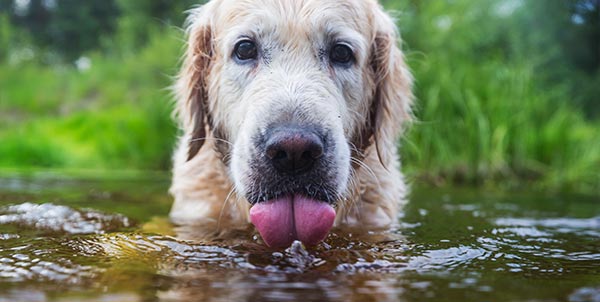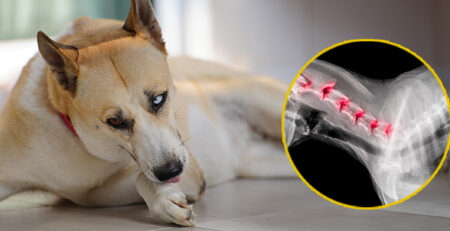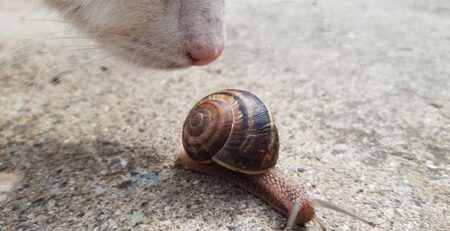Table of Contents
Clear, fresh, sweet waters..not all of them are: they may be contaminated with leptospirosis. If you want to protect your dog from this dangerous disease, don’t let him drink from stagnant puddles and streams.
Leptospirosis in dogs is a disease caused by bacteria, leptospires, released into the environment through the urine of mice and other infected animals commonly found in the woods and countryside.
It is carried by mice and rats but other animals also spread it: nutria, martens, skunks, weasels, squirrels, hedgehogs, foxes, deer, beavers, and wild boars are also vectors.
The most exposed dogs are those who practice outdoor living on a daily basis precisely because urine pollutes soil and water.
In fact, all those areas near marshes, streams, ditches, canals and ponds are at risk.
How does leptospirosis infection occur?
The dog can become infected by ingesting or licking infected urine.
The
rat urine
, among other things, resemble the smell of those of females in heat, and male dogs are particularly attracted to it.
The bacteria can also enter the dog’s body through the skin or ocular mucous membranes, especially in the presence of injuries, wounds and scratches.
How long is the incubation period of the disease?
The incubation period ranges from 5 to 14 days.
In general, the bacterium establishes itself in the kidney or liver causing even severe failure.
Le
leptospires
are also transmitted intraplacentally: if a pregnant female contracts the disease, the fetuses are destined to die.
How does leptospirosis manifest itself?
Kidneys and liver are the two organs most affected by the disease, which can occur in a chronic or acute form, with more or less severe symptoms.
The severity of the disease depends on age, environmental factors, the state of the dog’s immune system, and the virulence of the strain of leptospires involved.
The
chronic form
has little symptomatology: localization of leptospires in liver and kidneys causes slow-moving failure and is therefore difficult to diagnose.
In the
acute form
symptoms are, however, much more pronounced:
- high fever
- abatement
- intense thirst
- oculo conjunctival congestion
- Vomiting, increasingly frequent yellow (bile) or reddish (due to presence of blood)
- Stomatitis with ulcers and profuse salivation
- hemorrhagic diarrhea
- gastritis
- slimming
- dehydration
How is leptospirosis diagnosed?
The diagnosis of leptospirosis is based on laboratory tests, namely, CBC and biochemistry.
These blood tests detect both kidney and liver damage.
Further serological investigations allow determination of the type of leptospira (there are many species) that affected the dog so that the correct therapy can be prepared.
What does the therapy consist of?
Leptospirosis is treated with antibiotic and supportive therapy to rehydrate the dog, treat vomiting and diarrhea.
The dog’s survival will also depend on the ability to restore damage that has occurred in the kidney and/or liver.
How is infection prevented?
Prevention of the disease is based on environmental, behavioral and medical measures.
The high presence of rodents attracted by food remains or garbage is an important risk factor especially in public green areas or along waterways.
Therefore, it is important to avoid letting your dog roam free in high-risk areas.
Feed bowls left in the garden unattended can also be visited by rodents and pose a danger.
And then, fortunately, there is also the vaccine.
Vaccine prophylaxis: when and how to do it?
The best way to protect your dog’s health is to have vaccine prophylaxis.
In the case of leptospirosis, because this vaccine confers a shorter duration of immunity than other diseases, booster shots are given every six months in dogs at risk.
To always have full immunization from the diseases mentioned, it is essential to stick to the vaccination schedule proposed by your veterinarian.
When the disease is suspected, early detection of the disease is of paramount importance.
If you suspect your dog has contracted leptospirosis, book an appointment now with our Staff veterinary doctors for case evaluation.
We also remind you that in case of need and urgency, Clinica La Veterinaria is always open h24 every day including holidays and with First Aid service from 8 pm to 8 am.
For the joy of seeing them HAPPY.











